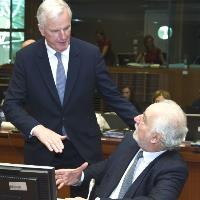(BRUSSELS) – The EU Council of 27 Member States formally authorised the beginning of talks with the UK Monday, following the notification of its intention to leave the EU. The Commission was nominated as the EU negotiator.
“Today we have established the EU position on the key issues for the beginning of the talks,” said Louis Grech, Malta’s Deputy Prime Minister for the EU presidency: “The rights of citizens are at the very top of our agenda and we aim for an ambitious solution, where those affected continue to enjoy their rights.”
The Council also adopted negotiating directives for the talks. The first phase of negotiations will tackle three main areas: safeguarding the status and rights of citizens EU27 citizens in the UK and UK citizens in the EU27 and their families; reaching an agreement on the principles of the financial settlement of the UK’s obligations as an EU member; providing for the new external borders of the EU, including the protection of the Good Friday Agreement, and finding imaginative solutions in order to avoid a hard border on the island of Ireland. Other issues include arrangements regarding dispute settlement and the governance of the withdrawal agreement.
Michel Barnier, the Commission’s Chief Negotiator said: “We are ready to sit down at the negotiating table with the UK. Our objective is to rapidly reach an agreement on the issues put forward by the Council today.”
The Commission has also published a transparency policy for the negotiations, which it says aims to ensure full transparency during the whole negotiating process. Commission negotiating documents which are shared with EU Member States, the European Council, the European Parliament, the Council, national parliaments, and the United Kingdom will be released to the public and will be published here. These documents include, but are not limited to agendas for negotiating rounds, EU position papers, non-papers and EU text proposals.
The first phase of the talks aims to provide as much clarity and legal certainty as possible and to settle the disentanglement of the UK from the EU. Once the European Council deems sufficient progress has been achieved, the negotiations will proceed to the next phase.
The Council states that an agreement on a future relationship between the EU and the UK can only be concluded once the UK effectively leaves the EU and becomes a third country. However, discussions on an overall understanding of that future relationship could start during a second phase of the negotiations.
General Affairs Council (Art. 50), 22/05/2017



